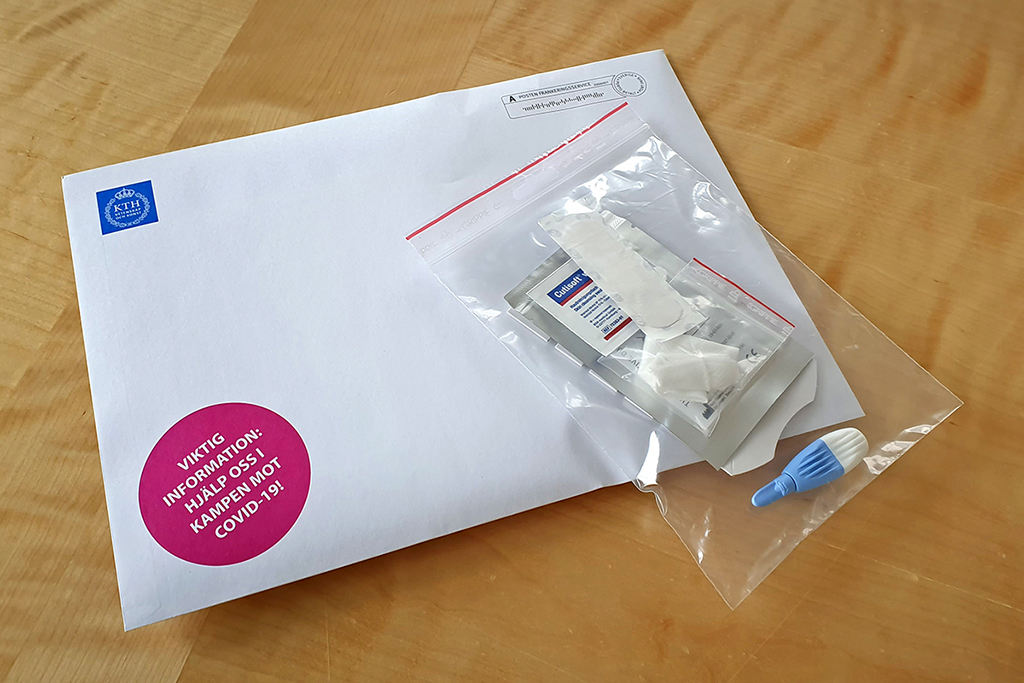New study confirms that 10 percent of the Stockholm population has antibodies against SARS-CoV-2
In the beginning of April, approximately 10 percent of Stockholm’s population had, at one point, formed antibodies against the virus causing COVID-19; according to a new study done by researchers at KTH, SciLifeLab and KI.
The researchers used home sample collection kits sent to 1000 random Stockholm residents between the age of 20-74 before Easter, to receive and analyse 440 out of all 550 anonymous blood samples they received during late April.
The results provided a first snapshot of the spread in Stockholm and are based on multiplexed serology assays developed by Jochen Schwenk (KTH/SciLifeLab) and his team.
“The assays measure IgG, IgM or IgA antibodies found in the dried blood samples and can detect which donor had antibodies for the different SARS-CoV-2 related proteins”, says Jochen Schwenk. “Measuring several proteins at the same time will enable us to obtain a better picture about the immune response against each of these viral proteins”.
The proteins were produced by the team of Gerald McInerney, Leo Hanke and Benjamin Murrell (KI) and more proteins and peptides will become available through other initiatives at SciLifeLab and KTH.
“This is one of the amazing aspects of the funding that KAW has given to SciLifeLab in the fight against COVID-19” says Jochen Schwenk.
“The incubation period for COVID-19 ranges from 2 to 14 days following exposure, with most cases showing symptoms approximately 4 to 5 days after exposure. The average sampling day was April 11”, says Niclas Roxhed (KTH), in a press release from KTH.
“This means that the 10 percent of the tested individuals were infected during or prior to late March” adds Jochen Schwenk.
The researchers have already initiated a follow up test with another 1000 sample collection kits sent out during the last week of April. This will determine how much the spread has increased during the past weeks.
“Being able to replicate our observations in a new set of random volunteers in Stockholm will be very important now, so we are grateful to everyone who is willing to contribute” concludes Jochen Schwenk.
Photo: KTH





